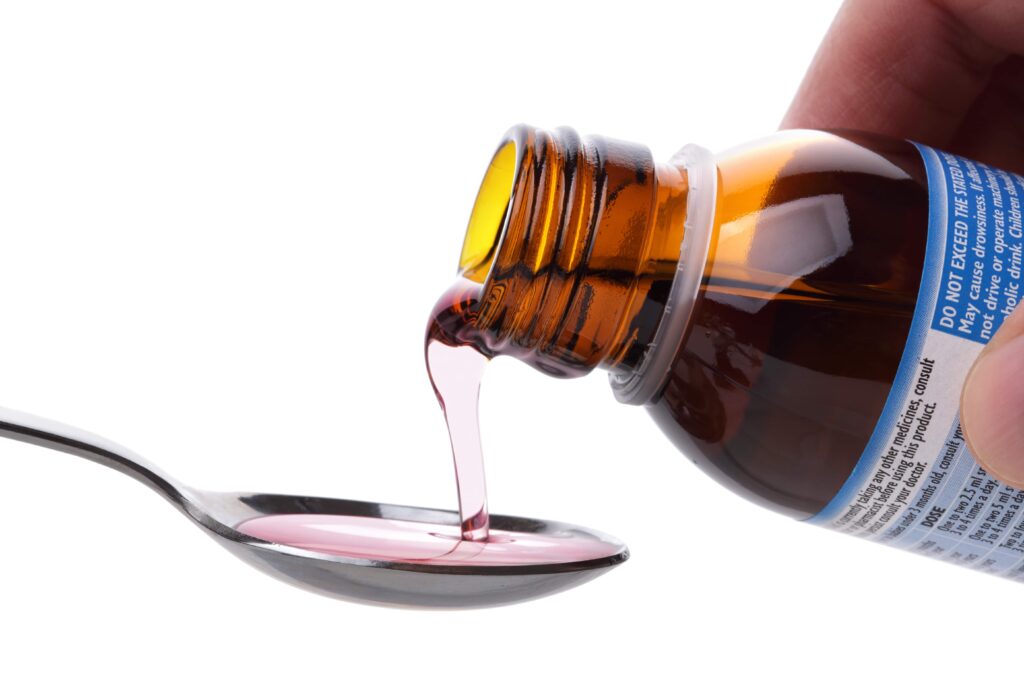When it comes to drug addiction, we understand that it’s not limited to street drugs like heroin or crack. The widespread issue of prescription drug addiction can impact anyone. Our mission is to provide individuals with a safe, comfortable, and supervised program for prescription drug detox in Nashville, Tennessee.
At Detox Nashville, we recognize the road to recovery starts with the essential first step—detoxification. With our comprehensive detox services, we ensure that your journey towards a healthier, drug-free life starts on the right foot, free from the physical and emotional distress associated with prescription drug withdrawal.
Understanding Prescription Drug Addiction
Prescription drug addiction refers to the compulsive and harmful use of medications that are legally prescribed by a healthcare professional. These medications are intended to treat specific medical conditions when used according to the prescribed dosage and instructions.
However, when individuals misuse or abuse these medications—by taking larger doses than prescribed, using them without a prescription, or using them for non-medical purposes—it can lead to the development of addiction.
Prescription drug misuse and abuse have reached alarming levels in the United States. Thereby, affecting millions of individuals. According to the National Institute on Drug Abuse (NIDA), in 2021:
- Approximately 14.3 million people misused prescription psychotherapeutic medications
- Around 8.7 million people misused prescription pain relievers
- Nearly 4.9 million people misused prescription tranquilizers or sedatives
- Approximately 3.7 million people misused prescription stimulant medications
- Around 3.9 million people misused benzodiazepines
These statistics reveal the profound impact of prescription drug addiction, highlighting the importance of addressing this issue effectively.
Commonly Abused Prescription Drugs
Several classes of prescription drugs are commonly abused. Often, leading to addiction and other health-related issues. The three main categories of prescription drugs that are frequently misused include opioids, benzodiazepines, and stimulants.
Opioids
- Examples: Oxycodone (OxyContin), hydrocodone (Vicodin), codeine, morphine, fentanyl.
- Medical Use: Prescribed for pain management, often after surgery or for chronic pain conditions.
- Abuse Potential: Opioids produce a sense of euphoria, leading to their misuse for recreational purposes.
Benzodiazepines
- Examples: Alprazolam (Xanax), diazepam (Valium), lorazepam (Ativan), clonazepam (Klonopin).
- Medical Use: Prescribed for anxiety, panic disorders, insomnia, and certain seizure disorders.
- Abuse Potential: Benzodiazepines can induce feelings of relaxation and sedation, leading to misuse, especially in individuals seeking to self-medicate for anxiety or to enhance the effects of other substances.
Stimulants
- Examples: Amphetamine/dextroamphetamine (Adderall), methylphenidate (Ritalin), and lisdexamfetamine (Vyvanse).
- Medical Use: Prescribed for attention deficit hyperactivity disorder (ADHD) and, in some cases, narcolepsy.
- Abuse Potential: Stimulants can increase alertness, energy, and attention, making them attractive to individuals looking to enhance focus or recreational experiences.
Barbiturates
- Examples: Phenobarbital, secobarbital, amobarbital.
- Medical Use: Historically used for anxiety and sleep disorders, but largely replaced by benzodiazepines due to a higher risk of overdose.
- Abuse Potential: Barbiturates can produce sedation and euphoria, but their use is limited due to the risk of overdose.
Prescription Cough Medications
- Examples: Codeine-containing cough syrups, often combined with promethazine (e.g., purple drank or sizzurp).
- Medical Use: Codeine is used as a cough suppressant in some prescription medications.
- Abuse Potential: Misuse of cough medications, especially those containing codeine, can lead to intoxication and dependence.
Ultimately, the misuse of any prescription medication can have serious health consequences. Including addiction, overdose, and other adverse effects. For those struggling with prescription drug addiction, seeking help from a professional prescription drug rehab program in Nashville is crucial for proper evaluation and treatment.

Factors Contributing to Prescription Drug Addiction
Several factors contribute to the development of prescription drug addiction. It’s often a complex interplay of various elements, and individual susceptibility varies. Here are some common factors:
Medical Conditions and Pain Management
- Individuals prescribed opioids for the management of chronic pain conditions may develop dependence or addiction over time.
- Chronic pain can lead to a reliance on pain-relieving medications, and some individuals may misuse them to achieve greater pain relief.
Overprescribing and Accessibility
- Overprescribing of medications by healthcare providers contributes to the availability of prescription drugs in the community.
- Easy access to prescription medications, either through one’s prescription or through others, increases the risk of misuse.
Individual Vulnerability
- Genetic factors and a family history of substance abuse increase an individual’s susceptibility to addiction.
- Biological and neurological factors contribute to variations in how individuals respond to certain medications.
Co-occurring Mental Health Disorders
- Individuals with mental health disorders, such as anxiety, depression, or trauma-related disorders, may be more prone to self-medicating with prescription drugs.
- The desire to alleviate emotional pain or distress can lead to the misuse of prescription medications.
Psychosocial Factors
- Stressful life events, such as trauma, loss, or significant life changes, contribute to the development of substance abuse disorders, including prescription drug addiction.
- Lack of social support and poor coping mechanisms may drive individuals to seek relief from prescription medications.
Peer Influence and Social Environment
- Peer pressure and the normalization of drug use within social circles contribute to prescription drug misuse.
- Exposure to friends or family members who misuse prescription drugs increases the likelihood of imitation.
Lack of Education and Awareness
- Insufficient knowledge about the risks and potential consequences of prescription drug misuse may lead individuals to underestimate the dangers.
- Limited awareness among healthcare providers about the potential for misuse and addiction contributes to overprescribing.
Previous Substance Abuse
- Individuals with a history of substance abuse, whether with prescription drugs or other substances, may be at an increased risk of developing addiction to prescription medications.
Age and Gender
- Certain age groups may be more vulnerable to prescription drug misuse. For example, adolescents and young adults may experiment with prescription drugs.
- Gender differences also play a role, as men and women may have different patterns of prescription drug misuse.
Addressing prescription drug addiction often involves a multifaceted approach. Thus, including proper medical management, psychological interventions, and social support. Additionally, prevention efforts should focus on education, responsible prescribing practices, and raising awareness about the potential risks associated with prescription drug misuse. Detox Nashville specializes in safe and effective prescription drug detox in Nashville, TN.
Treatment Options for Prescription Drug Addiction
The treatment for prescription drug addiction often involves a comprehensive and individualized approach that addresses the physical, psychological, and social aspects of the addiction. Some common treatment options available in Tennessee include:
Medical Detoxification
In cases of physical dependence, a supervised medical detox for prescription drugs in Nashville may be necessary to manage withdrawal symptoms. This process helps the individual safely and gradually eliminate the substance from their system.
Inpatient Rehabilitation
Following detox from our prescription drug rehab program in Nashville, inpatient or residential rehabilitation programs may be recommended as part of post-detox detox treatment. This option provides a structured and supportive environment for individuals recovering from prescription drug addiction.
Outpatient Rehabilitation
Outpatient programs following prescription drug detox in Nashville allow individuals to receive treatment while living at home. This option is suitable for those with a strong support system and the ability to maintain abstinence outside a 24/7 supervised environment.
Medication-Assisted Treatment (MAT)
MAT involves the use of medications, combined with counseling and behavioral therapies, to treat substance use disorders. For opioid addiction, medications like methadone, buprenorphine, or naltrexone may be prescribed to help manage cravings and withdrawal symptoms.
Individual Counseling
One-on-one counseling or therapy sessions with a trained addiction counselor or therapist can help individuals explore the underlying issues contributing to their addiction and develop coping strategies.
Group Therapy
Group therapy sessions provide a supportive environment where individuals can share their experiences, receive feedback, and learn from others facing similar challenges.
Cognitive-Behavioral Therapy (CBT)
CBT is a type of psychotherapy that focuses on identifying and changing unhealthy thought patterns and behaviors related to drug use. It helps individuals develop coping skills and strategies to avoid relapse.
Family Therapy
Involving family members in the treatment process can be beneficial. Family therapy addresses family dynamics, improves communication, and provides support for both the individual in recovery and their loved ones.
Aftercare and Relapse Prevention
Continued support is crucial after completing a formal treatment program. Aftercare may include ongoing therapy, support group participation (e.g., 12-step programs), and other resources to help prevent relapse.
Holistic Approaches
Some individuals find benefits in holistic approaches such as yoga, meditation, acupuncture, and art therapy, which can contribute to overall well-being during recovery.
Education and Skill Building
Providing education on addiction, relapse triggers, and coping skills equips individuals with the knowledge and tools necessary for long-term recovery.
It’s important to tailor the treatment plan to the individual’s specific needs and circumstances. Successful recovery often involves a combination of these approaches, and ongoing support is crucial for maintaining sobriety.

Prescription Drug Detox: The First Step to Recovery
Acknowledging addiction and deciding to begin prescription drug detox in Tennessee is challenging. Yet, it marks an integral recovery step. Applying an evidence-based model, we tailor a detox from prescription drugs plan for each client’s unique needs.
Seeking help from an experienced team of professionals, like our team at Detox Nashville, supports the journey to sobriety. By taking the first step of breaking free from drug and alcohol addiction, each bend in the road leads to successful recovery.
Why is Prescription Drug Detox Necessary?
Understanding the crucial role of detox in addiction recovery is necessary for promoting informed decisions toward a sober life. The road to sobriety starts with prescription drug detox and it’s paramount to understand the two significant factors that necessitate detox; Physical Dependence and Withdrawal Symptoms.
Physical Dependence
Physical dependence on prescription drugs is a severe health concern necessitating detox. Dependence spawns when someone needs increasing amounts of a substance to achieve the same effects. Or when withdrawal symptoms occur when attempting to quit or cut back.
Our team at Detox Nashville is ready to meet the unique needs of each client during detox for prescription drugs in Nashville. Thus, preventing relapse and moving them closer to their sobriety goals.
Withdrawal Symptoms
When breaking free from prescription drug dependency, withdrawal symptoms pose difficult challenges. Ranging from anxiety and insomnia to physical discomfort. And, in severe cases, hallucinations or seizures. These symptoms can be overwhelming. The intensity of these symptoms depends on the substance at hand and its consumption pattern.
However, through our strategic and comprehensive prescription drug rehab program in Nashville, we can lessen these withdrawal symptoms with appropriate medications and support to ensure a more comfortable detox process.
Prescription drug detox is a pivotal step toward recovery. Medical detox from prescription drugs not only alleviates physical withdrawal symptoms but also prepares individuals to confront the psychological factors of drug addiction. As signified by our success at Detox Nashville, those who complete our prescription drug detox in Nashville are more likely to continue treatment and achieve long-lasting sobriety.
Medical detox is a part of an all-encompassing continuum of addiction treatment programs. It is a critical strategy used in the early stages of drug addiction treatment to eliminate all traces of drugs and alcohol from the body. This entire process is regulated meticulously by an experienced medical team on a 24/7 basis, ensuring the utmost safety and well-being of the client.
While each individual’s path to sobriety is unique, one thing remains constant: the pressing need for a safe, effective prescription drug detox. Substance abuse has been an uphill challenge in Nashville. However, with more individuals seeking aid and joining our prescription drug detox program in Nashville, there is hope.
Remember, addiction is not a dead-end. With the proper help and determination, the road to recovery is within reach. The journey might be difficult, but with every brave step, the promise of a drug-free existence transitions from a dream to a rewarding reality.
Can I Detox From Prescription Drugs at Home?
Prescription drug detox should never be done at home or unsupervised. This is because withdrawal symptoms that come with detox can be uncomfortable but also potentially dangerous. Undergoing drug detox in a facility that specializes in the process helps keep a person safe from dangerous withdrawal symptoms. The medical staff can provide psychological and medical support that eases the pain of withdrawal, as well as monitor the person for potentially dangerous symptoms that may develop.
Those who go through prescription drug detox in a supervised, specialty program prove much more likely to complete detox and stay sober in the long run.
How Long Does it Take to Detox From Prescription Drugs?
One of the biggest concerns for people considering a detox program is the question: “How long will it take to detox from prescription drugs?” The truth is, there’s no one-size-fits-all answer. While the average detox period for prescription drugs ranges from 5 days to 2 weeks, several factors can influence your individual journey.
Factors that contribute to how long it takes to complete the detox process include how many substances were used, the length of time of the addiction, and the typical amount of drugs consumed. A person’s current physical and mental health may also factor into the detox time, as well as the number and severity of withdrawal symptoms they experience.
Prescription Drug Withdrawal Timeline and Symptoms
The answer to how long it takes to detox from prescription drugs is that it varies, depending on which type of prescription drug is involved.
- Amphetamines: Withdrawal symptoms typically start within a day of the last dosage and last for up to 2 weeks.
- Barbiturates: Withdrawal symptoms can start within 8 to 12 hours after the last dosage. They begin to lessen around day 4 and end after 1 week to 10 days.
- Benzodiazepines: Withdrawal symptoms from benzos can begin within several hours after the last dosage. Symptoms such as anxiety and depression often increase for up to 2 weeks. Both emotional and physical symptoms should subside after 2 weeks.
- Opioids: Withdrawal symptoms can begin within a few hours after the last dosage. The most intense symptoms are felt during the first 4 days, with most symptoms ending around 8 to 10 days.
- Stimulants: Withdrawal symptoms may begin within 12 hours of the last dosage. They last between 10 to 14 days.
Detox withdrawal symptoms can include:
- Nausea
- Vomiting
- Diarrhea
- Flu-like symptoms
- Disturbance in sleep patterns
- Muscle cramps
- Body aches
- Sweating
- Increased heart rate
- Seizures
- Hallucinations
- Anxiety
- Depression
- Agitation

What Medications Are Used In Detox for Prescription Drugs In Nashville?
Medication-assisted detox helps ease the symptoms of withdrawal, allowing people to reduce and even eliminate many uncomfortable reactions and feelings. Medications used for this purpose are FDA-approved and safe when used during medically monitored drug and alcohol detox. Typically used for withdrawal from alcohol and opioids, some medications also specifically target prescription drug withdrawal. Medical personnel overseeing the detox process can recommend what medications may be useful. These medications include:
- Methadone: People addicted to opioid prescription drugs use methadone to reduce their cravings and block the effects of opioids if they do use them.
- Naltrexone: This medication blocks the effects of prescription opioid drugs, making a person less likely to engage in using them again after detox.
- Buprenorphine: Reduces cravings for the prescription drug and also helps reduce withdrawal symptoms.
- Lofexidine: This medication helps reduce withdrawal symptoms during detox.
Medications used for detox work best when combined with behavioral counseling. When treatment programs combine medications and therapies, this greatly increases the chances that the individual will complete the detox process. The person also tends to stay in long-term recovery for a longer period than someone who does not receive the same care.
Choosing Detox Nashville for Prescription Drug Detox
When considering detox from prescription drugs, Detox Nashville in Tennessee is a top choice. We provide our clients with the care, support, and expertise necessary for a safe, successful detox journey.
Reputation and Experience
Our reputation as a reputable detox center in Nashville is built upon years of dedicated service and recovery successes. As one of Nashville’s premier prescription drug detox centers, we’re trusted by countless individuals who’ve decided to regain control of their lives.
Our team comprises highly effective professionals, all experienced in addiction treatment, providing 24/7 physical and psychological care. Clients have their vitals checked regularly while also having constant contact with psychiatric professionals to navigate the mental health aspects of prescription drug withdrawal.
The high capacity of our compassionate professionals serves as your safe sanctuary as you embark on your initial steps toward recovery. Our expertise is rooted in our commitment to providing quality detox care, emphasizing the importance of prescription drug detox in the overall addiction treatment process.
Specialized Treatment Programs
One of the core strengths of Detox Nashville lies in our specialized treatment programs for prescription drug detox in Nashville. We recognize the severity and varied nature of withdrawal symptoms that stem from stopping the use of drugs individuals have become dependent on. Therefore, ensuring the safety and well-being of our clients is a top priority at our center.
Clients undergo a medically supervised detox, equipping them with the safety and stability needed during withdrawal. We utilize medication and support to make the detox process manageable. Thus, significantly enhancing the success rates of clients who complete our detox programs.
Moreover, we pride ourselves on tailoring the detox process to the unique needs of every individual by creating personalized treatment plans. After detox, transitioning to a comprehensive substance use treatment program is smoother and more effective.
Supportive Environment
During your crucial detox journey, having a supportive environment is indispensable. At Detox Nashville, we’re dedicated to providing clients with a supportive and nurturing experience. We boast a detox process that is supervised 24/7 by our medical team. Therefore, assuring each client’s safety and health throughout the process.
Additionally, we provide emotional support, including counseling and group therapies. These addiction recovery services significantly improve detox program completion and success rates, setting a strong foundation for the entire recovery journey.

Our Approach to Prescription Drug Detox in Nashville
When it comes to detox, our empathetic, knowledgeable team creates a personalized, comprehensive approach. This strategy allows us to offer an immense benefit to those seeking detox from prescription drugs, aiding and supporting them on their path to recovery.
Assessment and Evaluation
To begin our prescription drug rehab program in Nashville, we first undertake an extensive assessment and evaluation. Our experienced professionals assess vital factors like the type of substance used, duration, and quantity of use, along with analyzing the overall physical and mental health of the individual.
The essential, initial evaluation helps us to plan a customized detox strategy for each client. Detail-oriented evaluation ensures the creation of an effective detox plan tailored for every unique case. We believe that every client demands an exclusive approach to successful recovery in a safe, supportive environment.
Medications to Manage Withdrawal
In our prescription drug detox program, we endorse the use of Medication-Assisted Treatment (MAT). This method is a core part of managing withdrawal symptoms. Recognizing and addressing these symptoms is vital in cutting the bond with prescription drug abuse.
We understand that withdrawal symptoms can be harsh and can often deter people from seeking help. To tackle this, we specifically use a combination of medications to relieve these symptoms and suppress cravings. This approach makes the detox process more comfortable and safe, increasing the chances of a successful detox from prescription drugs.
Individual and Group Therapy
We know that detox is not just a physical challenge—it’s a psychological one too. That’s why we integrate individual and group therapy as a vital part of our prescription drug detox strategy. In individual sessions, clients get an opportunity to address more personal, underlying issues that may fuel their addiction.
Additionally, we cherish the therapeutic power of group sessions where clients can connect with others experiencing the same journey. Bonding with peer groups engenders strong support networks and reduces feelings of isolation, thereby fostering a sense of unity and collective determination for recovery.
Aftercare and Support
Following a successful prescription drug detox in Nashville, our strategy doesn’t just end. We believe it’s crucial to avoid reverting to old habits and making strides toward a healthier tomorrow. Therefore, our approach to addiction treatment unfolds as a continuous journey, not a destination. Following the initial detox process, our dedicated team creates personalized post-detox recovery plans.
Also, for additional needs, we offer services like Vivitrol shots for long-term management of withdrawal symptoms post-detox. Our team curates every individual’s treatment plan based on their personalized response to detox treatment and is guided by the case managers’ recommendations. Continual care and monitoring, coupled with services like individual counseling and group therapy, make our prescription drug rehab program in Nashville stand out.

Take the First Step to Recovery With Prescription Drug Detox in Nashville, TN
We’ve shed light on how Detox Nashville stands out as an exceptional choice for prescription drug detox. We’re known for our comprehensive approach, starting with a thorough evaluation. Additionally, our use of Medication-Assisted Treatment (MAT) effectively manages withdrawal symptoms, bolstering the odds of a safe and successful detox.
Detox Nashville is more than just a detox center. It’s a place that helps you reclaim your life, free from the clutches of prescription drug addiction. So, take that first step towards recovery with Detox Nashville. It’s time to start anew. Let’s walk this path to recovery together.
Contact us today to learn more about our prescription drug detox in Nashville, Tennessee.